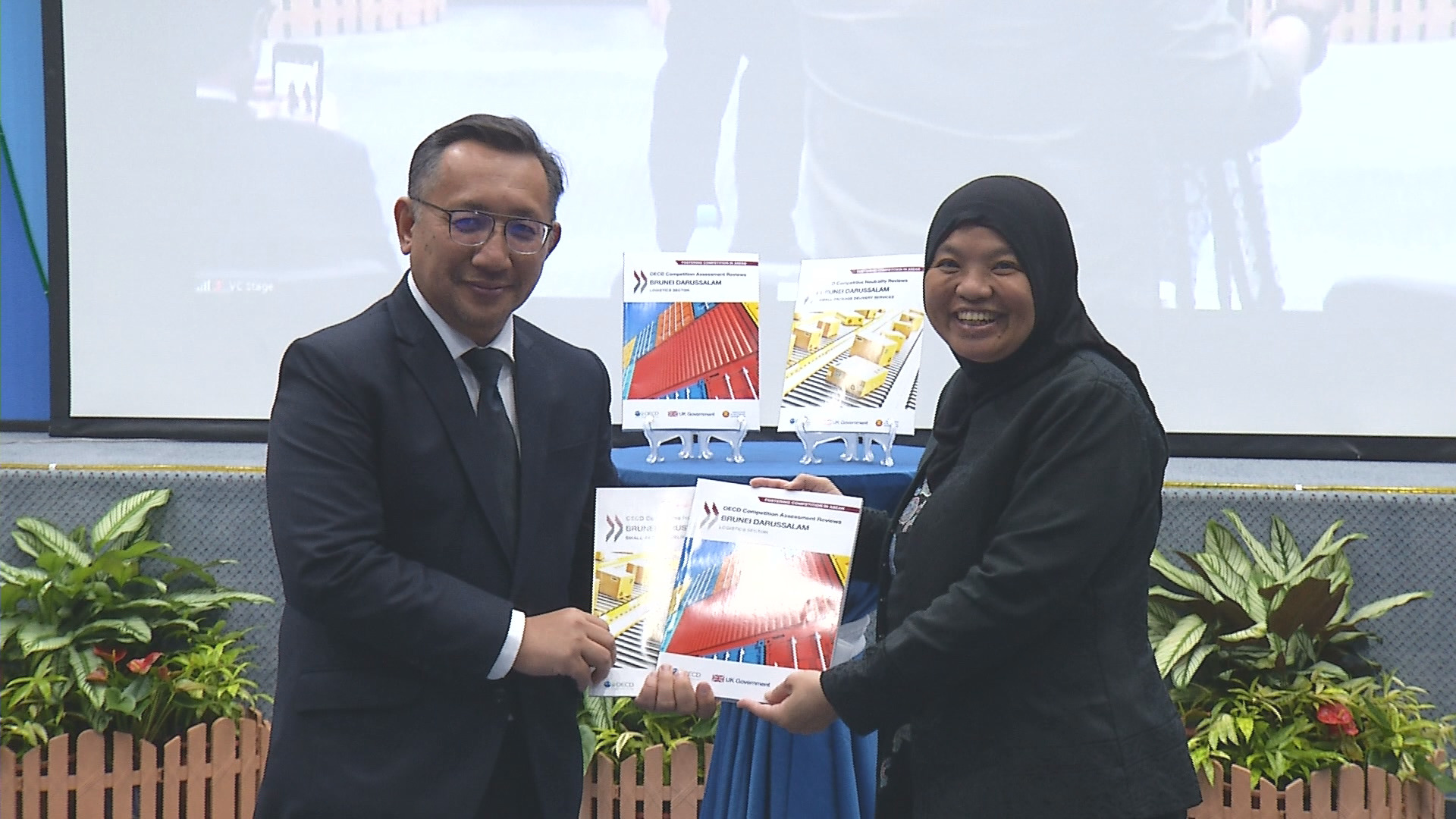Filter News
Latest News
Pro-competition reforms in Brunei Darussalam’s logistics sector can help economic diversification

Pro-competition laws and regulations can contribute to an efficient functioning of logistics sector in Brunei Darussalam in supporting the country’s efforts to diversify the economy towards a sustainable economic growth in the long-run.
The Competition Commission of Brunei Darussalam (CCBD) and the Organisation for Economic Cooperation and Development (OECD) today launch two reports on competition assessment of the logistics sector in Brunei Darussalam. The two reports namely, “Competition Assessment Reviews of Logistics Sector in Brunei Darussalam” and “Competitive Neutrality Reviews of Small Package Delivery Services in Brunei Darussalam” are the outcome of an independent study by the OECD as part of the ASEAN Competition Action Plan 2016-2025. The Action Plan provides strategic goals, initiatives and outcomes to fulfil the competition-related vision of the ASEAN Economic Community (AEC) Blueprint 2025. The study which is funded by the UK Prosperity Fund, aims to foster competition in the logistics sector in the ASEAN region.
The launching shared and highlighted the findings and recommendations of the reports in order to promote a pro-competition environment in the logistics sector. It also provides a platform for relevant stakeholders to engage and discuss the recommendations provided by the OECD in the reports.
The launching was opened by the Chair of the CCBD, Yang Berhormat Dayang Nik Hafimi binti Abdul Haadii, where she highlighted that the aim of competition policy and
law is to promote a level playing field for business players to deliver optimal economic outcomes. The effective enforcement of competition law deters harmful anticompetitive practices and open doors for more business opportunities and better choices of goods and services at more competitive pricing for consumers. However, competition policy and law cannot work in isolation and must be complemented by other related policies. Hence, this will require complementary efforts from the sector regulators’ part.
Remarks were also delivered by His Excellency Mr John Virgoe, the British High Commissioner in Brunei Darussalam; Mr Antonio Capabianco, Acting Head of the OECD Competition Division; and Mr Looi Teck Kheong, Head of Competition, Consumer Protection & IPR of the ASEAN Secretariat.
The highlight of the launching was a keynote address by Yang Mulia Awang Haji Mohammad Nazri bin Haji Mohammad Yusof, Permanent Secretary at the Ministry of Transport and Infocommunications (MTIC). In his keynote message, he underscored the importance of effective competition in developing an efficient logistics sector. When markets function well, consumers can choose between different providers of goods or services, and firms are incentivised to compete, innovate more, and be more productive. Despite the relatively small share of 1.7 % of logistics in the country’s Gross Domestic Product (GDP) in 2019, the logistics sector nonetheless plays a vital part in achieving economic development and diversification by enabling international trade and enhancing connectivity.
It was shared that MTIC Strategic Plan 2025 has a vision of “Connected Smart Nation” where technology and connectivity are to be the catalyst to growth through improved competitiveness by developing infrastructure, innovation, data capability, human capital and other resources. Two of the key Strategic Objectives are directly linked to logistics as well as competition. The strategies are on Ensuring Sustainability of Transport and Infocommunications Sector, and Policy and Regulatory Framework conducive to Investment and Businesses to ensure healthy competition. MTIC has also undertaken the initiative to form the Brunei Logistics and Transshipment Task Force (BLTTF) in 2020 to further facilitate active engagement and interaction between government and businesses to improve the logistics and value chain eco-system. He applauded the initiative of ASEAN and the CCBD in fostering competition in the logistics sector under the ASEAN Competition Action Plan.
The Report on Competition Assessment reviewed 63 relevant laws and regulations that can limit competition in the logistics sector with a focus on, including freight transportation, freight forwarding, and small-package delivery services. The Report on Competitive Neutrality assessed 6 relevant laws and regulations related to the impact of State-Owned Enterprises (SOEs) and the application of competitive neutrality on Small-Package Delivery Services.
To read more: http://ccbd.gov.bn/Lists/News/NewDispForm.aspx?ID=61
